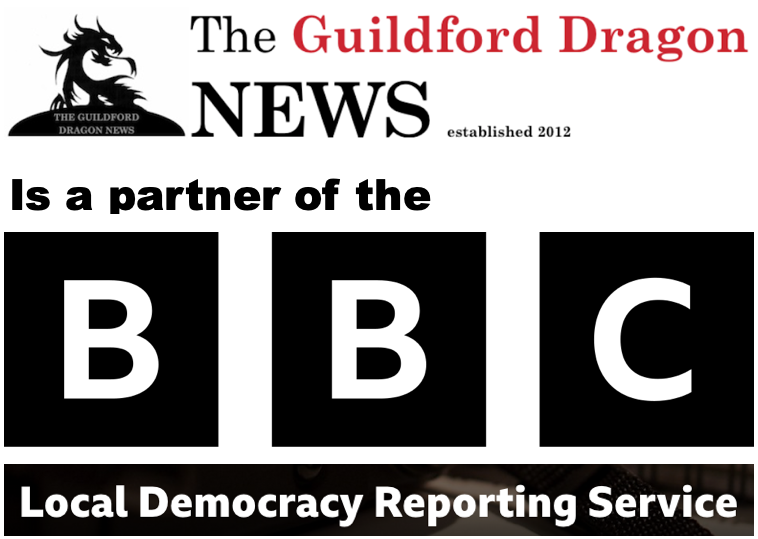 Abraham Lincoln
If given the truth, the people can be depended upon to meet any national crisis...
Abraham Lincoln
If given the truth, the people can be depended upon to meet any national crisis...
 Guildford news...
for Guildford people, brought to you by Guildford reporters - Guildford's own news service
Guildford news...
for Guildford people, brought to you by Guildford reporters - Guildford's own news service
Place-Based Growth In Surrey: Key Questions For The May 6 Local Elections
Published on: 30 Apr, 2021
Updated on: 29 Apr, 2021
 Professor Amelia Hadfield, head of Department of Politics, Dean International
Professor Amelia Hadfield, head of Department of Politics, Dean International
In the department of politics at the University of Surrey, we’ve been undertaking fascinating research on place-based growth in the county. Last year, we surveyed the impact of Covid on Surrey’s core sectors.
And the insights likely to affect the outcome of our May 6 local elections involve both Covid and growth, specifically, getting from one to the other. A key questions we’ve been asking citizens, stakeholders and decision-makers is simply: “What does good growth for Surrey look like?”
Pre-Covid, the general sense was that growth in, and for Surrey, was multi-purpose. “Good growth” pre-2020 was generally understood to be focused on a pressing need for new infrastructure, for example, delivering high-quality buildings and public realm space, plugging in strongly to boost the local economy.
But post-Covid, growth in Surrey has interesting new features. Reviving the local economy is a key factor, along with infrastructure challenges of reworking the high street, but there is also a greater focus on the mental and physical health of residents as they recover from the impacts of ill health and lockdown.
Growth is now defined as a goal that needs to be reflective of what Surrey needs but also “inclusive” of who it is as a community, including tackling areas of deprivation, supporting those facing unemployment, particularly young people and those aged 50 to 69 who have also lost jobs.
The pandemic has clearly caused a shift in thinking on priorities for growth, prompting new understandings by many on the very real importance of physical and mental wellbeing, and the broader need for local government to ensure upcoming growth strategies firmly incorporate wellbeing.
This itself suggests expectations have shifted; many many individuals and whole communities are not able or likely to simply “bounce back”.
Immediate measures are needed to support Surrey citizens in their various recoveries from inactivity, isolation and grief, as well as the increased professional and family workload and financial pressures experienced during lockdown.
Business has been hard-hit too. While many local small and medium-sized companies have done well to survive past and present financial challenges, many working in these companies are close to the edge of what they can cope with emotionally, and further shocks may prove difficult to manage.
Education is another sector of concern. Pre-Covid, considerable challenges about mental health in children were already acknowledged, with an estimated 10,600 children suffering mental health disorders in Surrey, and 23,000 children in poverty, itself linked to poor mental health.
The impact of Covid on children’s physical and mental health is as yet unknown, and the rise in domestic violence since the beginning of the pandemic also needs urgent attention.
From my university perspective, although I think we’ve done very well to ensure the campus is Covid-compliant while also providing a good student experience for those physically on campus, the impact is taking its toll in mental health, screen fatigue, and physical and emotional isolation for the many thousands who remained online with us for more than a year, within Surrey and beyond.
For many, re-growing Surrey means greater recognition of the value of key workers, and the need for affordable housing, increasing the ability to work from home, or closer to home.
So, co-working spaces, private and public have featured. Other elements of growth will seem familiar, but now have a particular urgency, post-Covid, including tackling the impacts of climate change, and ensuring carbon-neutral, or even carbon-free capital expenditure, jobs and investment are all carefully planned and delivered at a local level.
The overarching message is that good growth for Surrey needs to be proportional and sustainable, supporting the health and wellbeing of residents and its community more broadly. The question for residents come May 6 is who of your available candidates are best placed to deliver the kind of growth Surrey needs?
[2] https://www.cfsurrey.org.uk/coronavirus-response-fund-domestic-abuse/
Recent Articles
- ‘Emergency’ Roadworks Commence Without Warning, Closing The Portsmouth Road
- Police Investigate Public Order Offence in Walnut Tree Close
- Woman Arrested After Guildford Town Centre Assault – Witnesses Sought
- Guildford Among Top Quarter for Recycling Rejection Rates in the South East, New Data Reveals
- Highways Bulletin: Roadside Rangers Making a Visible Difference Across Surrey
- Letter: The Enduring Role of Parish and Town Councils
- Mr Carpenter’s Byfleet Seedling and Other Varieties of Apples
- Guildford MP Visits Local Satellite Firm During 40th Anniversary Year
- Letter: Only a Town Council Will Give Us to the Option to Choose on Some Local Services
- Comment: Parish Councils – Who Cares?



Search in Site
Media Gallery
Dragon Interview: Local Artist Leaves Her Mark At One of England’s Most Historic Buildings
January 21, 2023 / No Comment / Read MoreDragon Interview: Lib Dem Planning Chair: ‘Current Policy Doesn’t Work for Local People’
January 19, 2023 / No Comment / Read MoreA3 Tunnel in Guildford ‘Necessary’ for New Homes, Says Guildford’s MP
January 10, 2023 / No Comment / Read More‘Madness’ for London Road Scheme to Go Ahead Against ‘Huge Opposition’, Says SCC Leader
January 6, 2023 / No Comment / Read MoreCouncillor’s Son Starts Campaign for More Consultation on North Street Plan
December 30, 2022 / No Comment / Read MoreCounty Council Climbs Down Over London Road Works – Further ‘Engagement’ Period Announced
December 14, 2022 / No Comment / Read MoreDragon Interview: GBC Reaction to the Government’s Expected Decision to Relax Housing Targets
December 7, 2022 / No Comment / Read MoreHow Can Our Town Centre Businesses Recover? Watch the Shop Front Debate
May 18, 2020 / No Comment / Read More













Recent Comments